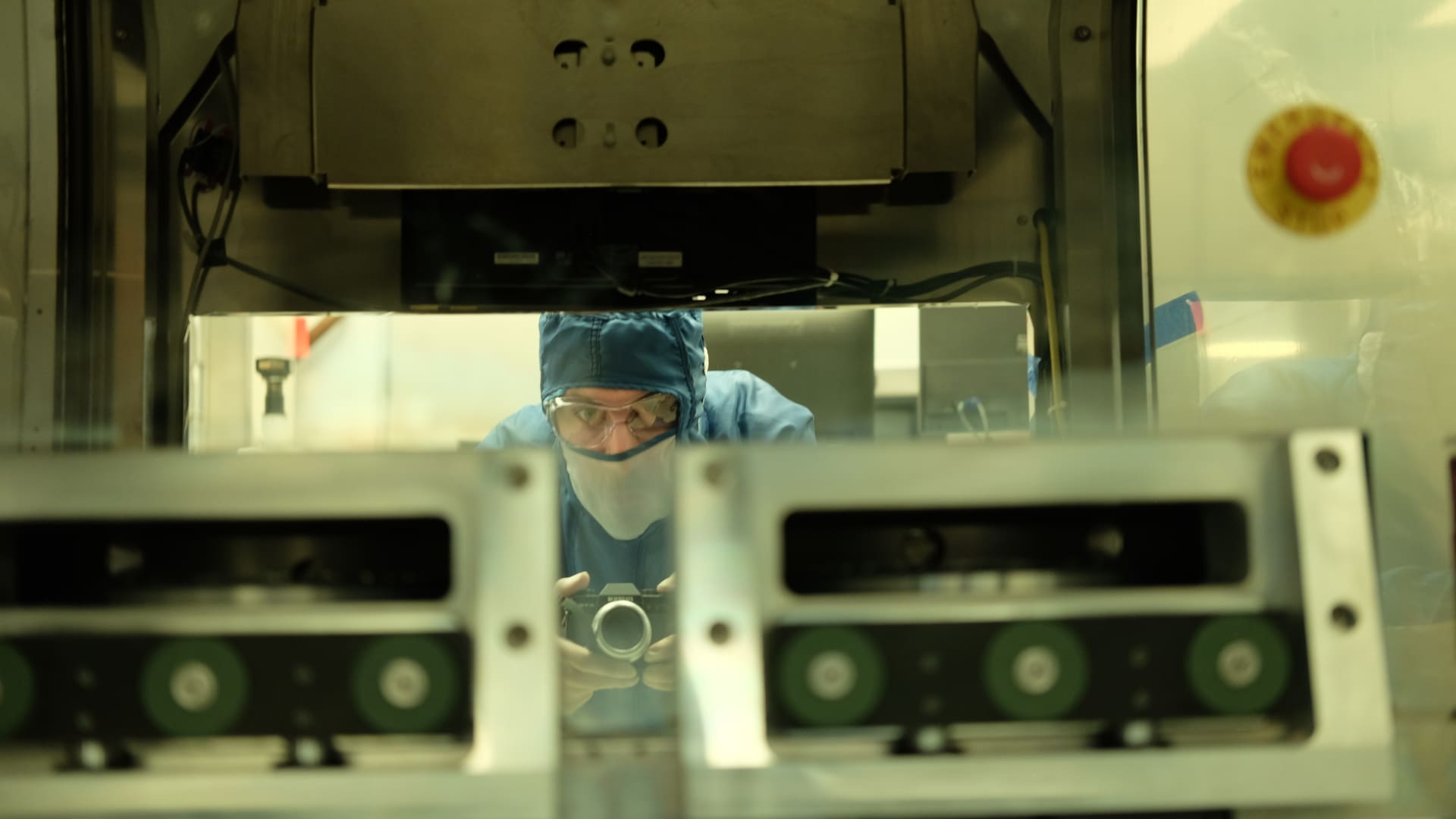A Science staff at get the job done in the lab.
Courtesy: Science Company
Biotechnology startup and Neuralink competitor Science on Monday released a new system that aims to make it a lot easier for other corporations to immediately acquire and generate medical gadgets.
The system, known as Science Foundry, enables companies to make the most of and make on Science’s inside infrastructure by presenting access to a lot more than 80 of its tools and expert services, like the company’s slim-movie electrode systems.
The charge of the know-how needed to acquire medical units is typically “prohibitive” for early-stage startups, Science Co-Founder and CEO Max Hodak informed CNBC in an job interview. Specific resources can price everywhere from $200,000 to $2 million, and Hodak mentioned businesses could very easily shell out hundreds of hundreds of thousands creating a producing line.
For quite a few startups, that price tag is also a great deal to bear, but Hodak is hoping Science Foundry can assist.
“Hopefully, we provide down the boundaries to innovation,” Hodak stated. “You can find a bunch of smart persons out there that have a bunch of different ideas than the kinds that we have, and we would like to help them.”
Science is aspect of the increasing mind-pc interface, or BCI, sector. A BCI is a method that deciphers brain alerts and interprets them into instructions for exterior systems. Maybe the ideal-regarded identify in the house is Neuralink, many thanks to the high profile of founder Elon Musk, who is also the CEO of Tesla, SpaceX and Twitter.
Hodak co-established Neuralink and served as the company’s president right up until he declared his departure in 2021. At Neuralink, Hodak helped build a BCI program that is developed to be implanted specifically into the brain, but at Science, he is doing the job on an implant that will not straight touch the brain at all.
Science’s flagship BCI procedure is the Science Eye– a visible prosthesis that aims to assist clients with two forms of critical blindness restore some visible enter to their brains.
The Science Eye depends on a skinny, flexible micro-LED array that is surgically implanted more than the retina. The implant controls a team of mild-delicate cells in the optic nerve that Science alters by means of a type of optogenetic gene treatment. When a person pixel is turned on in the array, a mobile is turned on in the optic nerve, which can be used to travel the nerve and mail eyesight into the mind.
Science’s implant is run by specific glasses that are outfitted with little sensors and cameras. The LED array interprets the pictures it receives from the eyeglasses and sends them up to the optic nerve.
Hodak said the resulting images will glimpse diverse than what folks with balanced eyes are made use of to – at minimum for the initial iteration of the technological innovation – but that it will be really restorative for sufferers with no gentle sensitivity. Sooner or later, he mentioned thinks Science will be in a position to reproduce substantial-resolution color vision.
Science has been tests the technological innovation in rabbits, and Hodak explained the firm hopes to eventually conduct trials with human clients as before long as future yr.
The company’s new platform Science Foundry aims to assist businesses operating on similarly bold suggestions. Hodak mentioned he expects to see demand from other neurotechnology firms, but that other clinical technology startups and even quantum computing firms signify expansion alternatives.
The price tag of employing Science Foundry is similar to the expense of doing work with academic services, which are “cheap to get began,” Hodak stated. But though educational facilities commonly do not permit firms to test units on people or offer them on the industry, Hodak explained it will be less difficult for Science Foundry consumers to commercialize their products.
Hodak stated the system will benefit Science and the broader sector as a whole.
“This enables us to manage more substantial-scale and additional abilities that then we can use to enable the group and ourselves even more,” he explained.





More Stories
Durango church offers ambulatory medical equipment for lending – The Durango Herald
How Robotic Applications are Changing Medical Devices
Online tool analyzes at-home videos to predict musculoskeletal health